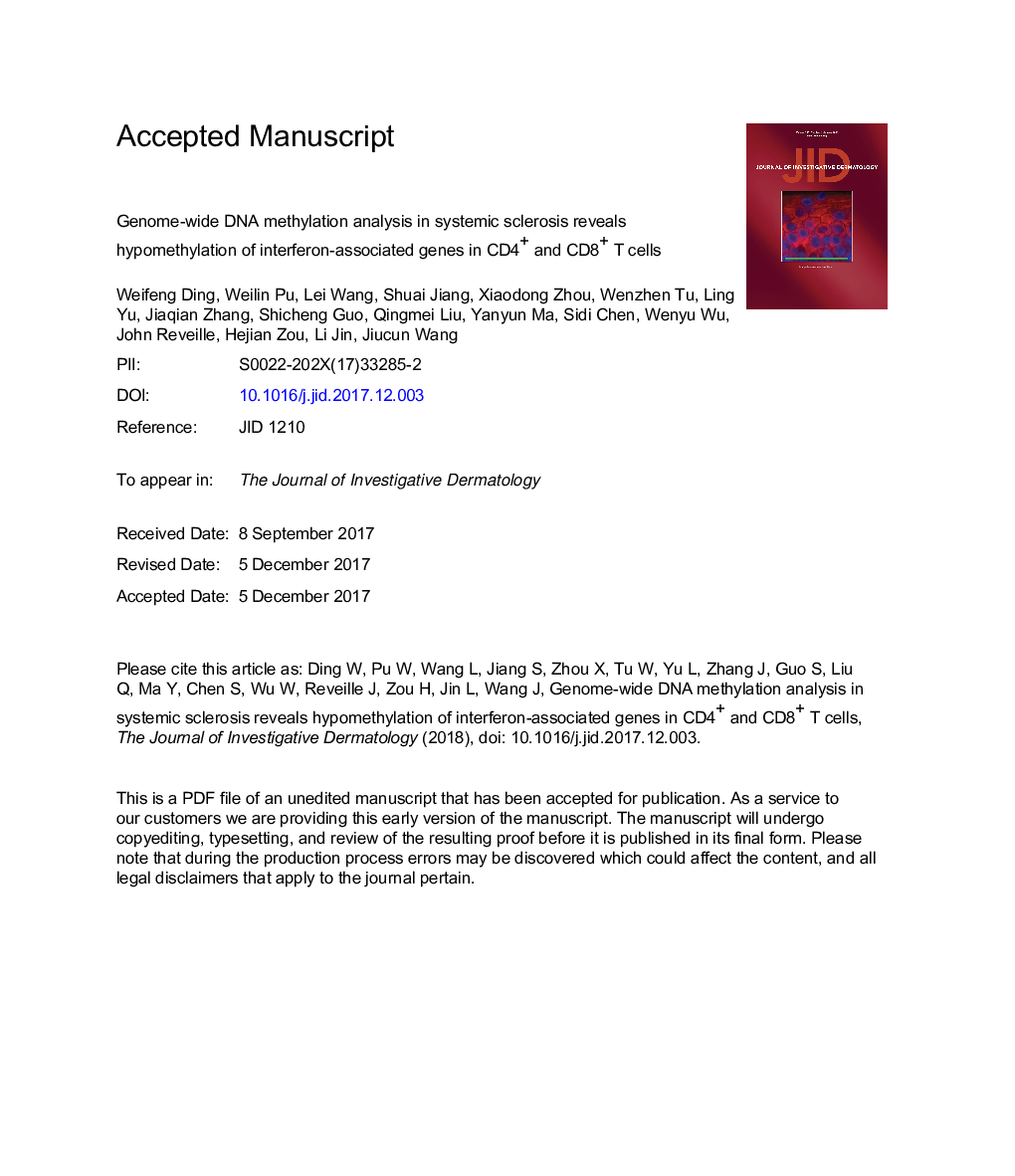| Article ID | Journal | Published Year | Pages | File Type |
|---|---|---|---|---|
| 8715931 | Journal of Investigative Dermatology | 2018 | 28 Pages |
Abstract
Epigenetic modifications, including DNA methylation, play an important role in the pathogenesis of autoimmune diseases. In this study, we characterized the DNA methylome in primary T cells of patients with systemic sclerosis. Genome-wide DNA methylation assays of CD4+ and CD8+ T cells from 24 systemic sclerosis patients and 24 matched controls were conducted and differentially methylated regions were validated. In the discovery stage, we found that hypomethylation of genes involved in the type I IFN signaling pathway was significantly enriched in both CD4+ (P = 7.59 à 10â6) and CD8+ (P = 2.10 à 10â8) differentially methylated regions. In the validation stage, we confirmed these changes for five type I IFNâassociated genes. In addition, protein levels of both type I IFN-α (P < 0.0001) and β (P = 0.002) were significantly elevated in the sera of systemic sclerosis patients. Moreover, significant associations between type I IFN-α/β protein levels with the DNA methylation status as well as the expression profiles of these IFN-associated genes were confirmed. In conclusion, the type I IFN pathway is dysfunctional at the epigenetic level in systemic sclerosis patients, indicating that hypomethylation and upregulation of type I IFNâassociated genes might be critical in systemic sclerosis pathogenesis.
Related Topics
Health Sciences
Medicine and Dentistry
Dermatology
Authors
Weifeng Ding, Weilin Pu, Lei Wang, Shuai Jiang, Xiaodong Zhou, Wenzhen Tu, Ling Yu, Jiaqian Zhang, Shicheng Guo, Qingmei Liu, Yanyun Ma, Sidi Chen, Wenyu Wu, John Reveille, Hejian Zou, Li Jin, Jiucun Wang,
